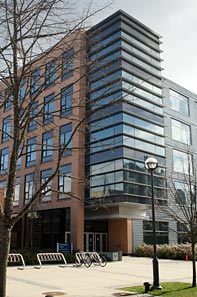Beyond the limits of our senses exists an infinitely diverse microbial world. This microcosm extends into virtually every imaginable habitat (including our own bodies), thrives under powerful extremes, and helps create and sustain essential biogeochemical cycles. Because the vast majority of microorganisms resist laboratory cultivation, our views on the extent and meaning of microbial diversity have long been impaired. A modern scientific synthesis called environmental genomics, also known as metagenomics, is now unfolding with great potential to reveal the genetic and phenotypic plasticity of naturally occurring microbial communities as they relate to Earth Systems, environmental health and human disease.
At present, we are engaged in three major science themes related to microbial communities associated with aquatic, terrestrial and metazoan ecosystems. In the first, we are exploring the metabolic properties of hydrocarbon-rich sediments and expanding oxygen minimum zones. In the second, we have partnered with several other labs at UBC to evaluate microbial communities involved in forest soil productivity, explosives decontamination and passive mine remediation. Finally in the third, we are investigating molecular mechanisms underlying archaeal-sponge symbiosis to gain insight into the evolution and modulation of innate immunity. All three science themes share in common a core set of interdisciplinary tools and approaches used to evaluate the functional properties of uncultivated microorganisms, and all three view microbial communities as cellular constituents within the body of an ecosystem that provide useful or essential nutritional, energetic and detoxification services.


